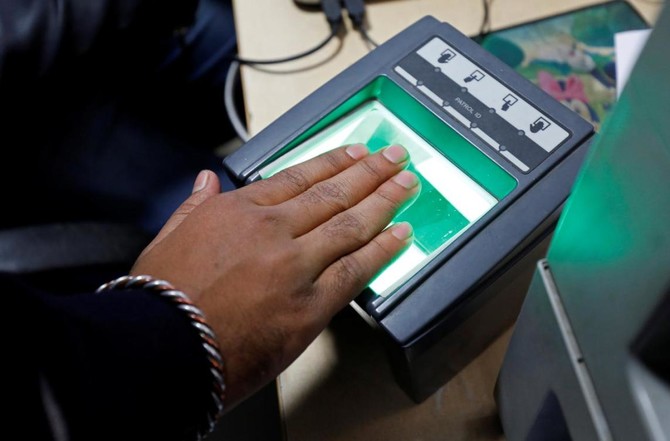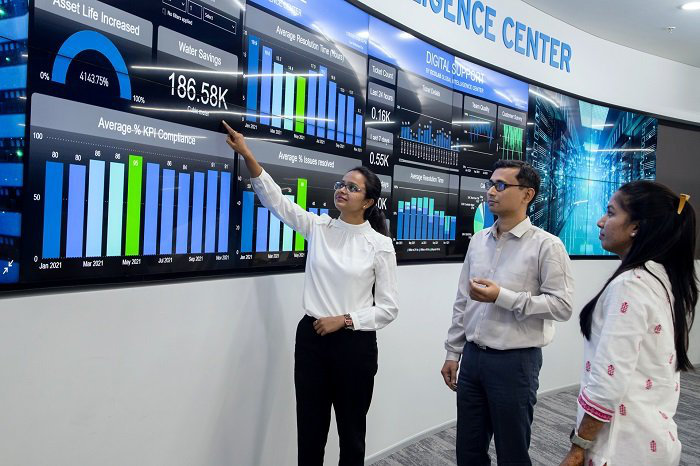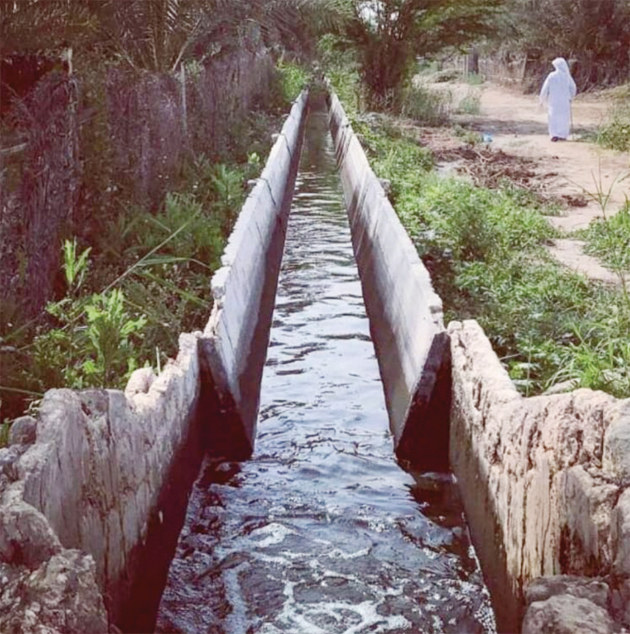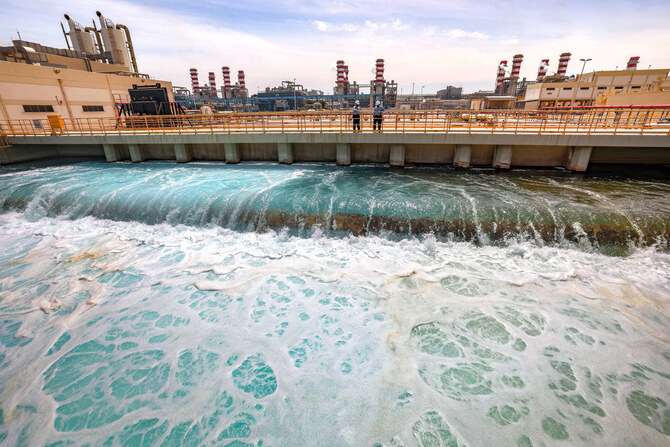NEW DELHI: The semi-government agency behind India’s national identity card project on Saturday denied a report by news website ZDNet that the program has been hit by another security lapse that allows access to private information.
ZDNet reported that a data leak on a system run by a state-owned utility company, which it did not name, could allow access to private information of holders of the biometric “Aadhaar” ID cards, exposing their names, their unique 12-digit identity numbers, and their bank details.
But the Unique Identification Authority of India (UIDAI), which runs the Aadhaar program, said “there is no truth in this story” and that they were “contemplating legal action against ZDNet.”
ZDNet could not immediately be contacted for comment on the UIDAI’s response.
“There has been absolutely no breach of UIDAI’s Aadhaar database. Aadhaar remains safe and secure,” the agency said in a statement late on Saturday.
“Even if the claim purported in the story were taken as true, it would raise security concerns on database of that utility company and has nothing to do with the security of UIDAI’s Aadhaar database,” it said.
More than a billion users
ZDNet had reported that even though the security lapse had been flagged to some government agencies over a period of time, it has yet to be fixed. It said it was withholding the name of the utility and other details.
Karan Saini, a New Delhi-based security researcher, said that anyone with an Aadhaar number was affected.
“This is a security lapse. You don’t have to be a consumer to access these details. You just need the Uniform Resource Locator where the Application Programming Interface is located. These can be found in less than 20 minutes,” Saini told Reuters.
In recent months researchers and journalists who have identified loopholes in the identity project have said they have been slapped with criminal cases or harassed by government agencies because of their work.
Aadhaar, a biometric identification card with over 1.1 billion users, is the world’s biggest database.
But it has been facing increased scrutiny over privacy concerns following several instances of breaches and misuse.
Last Thursday, the CEO of the UIDAI said the biometric data attached to each Aadhaar was safe from hacking as the storage facility was not connected to the Internet.
“Each Aadhaar biometric is encrypted by a 2048-key combination and to decode it, the best and fastest computer of our era will take the age of the universe just to hack into one card’s biometric details,” Ajay Bhushan Pandey said.
Indian agency denies reported security lapse in ID card project
Indian agency denies reported security lapse in ID card project

Egyptians protest at Rafah border crossing against Trump’s plan to displace Palestinians

- Trump said on Saturday that Egypt and Jordan should take in Palestinians from Gaza, which he called a “demolition site” following 15 months of Israeli bombardment
- Critics warned that Trump's suggestion was exactly what Israel's Zionist extremists have been trying to do, to kick out Palestinians from their homeland
CAIRO: Thousands of people demonstrated at the Rafah border crossing on Friday, an eyewitness told Reuters, in a rare state-sanctioned protest against a proposal earlier this week by US President Donald Trump for Egypt and Jordan to accept Gazan refugees.
Egyptian President Abdel Fattah El-Sisi on Wednesday rejected the idea that Egypt would facilitate the displacement of Gazans and said Egyptians would take to the streets to express their disapproval.
Protesters could be heard chanting “Long Live Egypt” and waving Egyptian and Palestinian flags.
“We say no to any displacement of Palestine or Gaza at the expense of Egypt, on the land of Sinai,” said Sinai resident Gazy Saeed.
Trump said on Saturday that Egypt and Jordan should take in Palestinians from Gaza, which he called a “demolition site” following 15 months of Israeli bombardment that rendered most of its 2.3 million people homeless.
On Thursday, Trump forcefully reiterated the idea, saying “We do a lot for them, and they are going to do it,” in apparent reference to abundant US aid, including military assistance, to both Egypt and Jordan.
Any suggestion that Palestinians leave Gaza — territory they hope will become part of an independent state — has been anathema to the Palestinian leadership for generations and repeatedly rejected by neighboring Arab states since the Gaza war began in October 2023.
Jordan is already home to several million Palestinians, while tens of thousands live in Egypt.
Egypt’s president El-Sisi congratulates Syria’s new president Sharaa, statement says

CAIRO: Egypt President Abdel Fattah El-Sisi congratulated Syria’s new President Ahmed Al-Sharaa, who was appointed on Wednesday by armed factions, and wished him success in achieving the Syrian people’s aspirations, El-Sisi said in a statement on Friday.
Sharaa, an Islamist who was once an affiliate of Al-Qaeda, has been trying to gain support from Arab and Western leaders since he led a rebel offensive that toppled former Syrian President Bashar Assad last year.
Small plane crashes near Philadelphia mall, multiple casualties on ground, reports say

A small plane carrying two people crashed in the vicinity of a shopping mall in Philadelphia, resulting in multiple casualties on the ground, local media reported on Friday.
The Philadelphia Inquirer newspaper, citing police, said the crash took place shortly after 6 p.m. Eastern near the Roosevelt Mall in northeast Philadelphia.
At least one house and multiple cars are on fire, the newspaper reported.
The Philadelphia Office of Emergency Management confirmed on social media that there was a “major incident” in the area of the reported crash, but provided no other details.
The Philadelphia CBS affiliate showed images of a large fire and several fire trucks at the scene of the crash, and that the status of victims was not immediately known.
Neither the Philadelphia police department nor the fire department immediately responded to requests for comment.
UN ‘alarmed’ at reported summary executions of civilians in Sudan

- After months of apparent stalemate in Khartoum, the army last week broke an almost two-year RSF siege of its Khartoum General Command headquarters.
GENEVA: The UN rights chief said Friday that he was “deeply alarmed” by reports of summary executions of civilians in Khartoum North, allegedly by Sudanese army fighters and allied militia.
“Deliberately taking the life of a civilian or anyone not or no longer directly taking part in hostilities is a war crime,” Volker Turk said in a statement.
The war between Sudan’s army (SAF) and the paramilitary Rapid Support Forces (RSF) since April 2023 has killed tens of thousands of people and uprooted more than 12 million, according to the United Nations, and pushed millions to the brink of famine.
After months of apparent stalemate in Khartoum, the army last week broke an almost two-year RSF siege of its Khartoum General Command headquarters.
On the same day, the army reported reclaiming its Signal Corps base in Khartoum North, and expelling the RSF from the Jaili oil refinery north of Khartoum.
The UN rights office said it had verified the killings of at least 18 people, including one woman, in seven separate incidents “attributed to SAF-affiliated fighters and militia since the SAF regained control of the area on 25 January.”
“Many of the victims of these incidents, which took place in the vicinity the Al Jaili oil refinery, were originally from the Darfur or Kordofan regions of Sudan,” it said.
The rights office also highlighted “further disturbing allegations emanating from Khartoum North,” which it was still corroborating.
It noted a video circulated Thursday showing men in SAF uniform and members of the Al Baraa Bin Malik Brigade in Khartoum North “reading out a long list of names of alleged RSF collaborators, saying ‘Zaili’ — Arabic for ‘killed’ — after each name.”
“These reports of summary executions, following similar incidents earlier this month in Al Jazirah State, are deeply disturbing,” Turk said, adding that “such killings must not become normalized.”
He reiterated his call for “all parties to the conflict to take urgent action to protect civilians and to uphold obligations under international humanitarian and human rights law.”
“Independent investigations must be held into these incidents in line with relevant international standards.”
The rights office voiced fear of further attacks “amid shocking threats of violence against civilians.”
It said it had reviewed a video showing a member of the Al Baraa Bin Malik Brigade “threatening to slaughter the residents of El Hadj Yusif in East Nile,” an area of Khartoum North.
The office also denounced continued RSF attacks on civilians and civilian infrastructure, including the shelling of a camp for displaced people in El-Fasher in North Darfur that killed nine civilians on Wednesday.
And on January 24, a drone attack on a maternity hospital in El-Fasher, attributed to the RSF, left at least 67 dead and 19 injured, it said.
“Deliberate attacks on civilians and civilian objects are abhorrent,” Turk said.
“Such attacks constitute serious violations of international humanitarian law and may constitute war crimes.”
How Saudi Arabia is preserving its precious freshwater resources

- Vision 2030 prioritizes sustainable water management through conservation programs, advanced irrigation, and public awareness initiatives
- US firm Ecolab partners with Saudi companies like Aramco to develop water-saving technologies and improve resource management
RIYADH: Water scarcity is a pressing issue in Saudi Arabia, significantly impacting the country’s socio-economic development as well as its environmental sustainability.
As one of the hottest and driest regions in the world, the Kingdom faces many challenges owing to its limited natural freshwater sources and high rates of evaporation.
These harsh realities have forced the country to rely on limited groundwater and desalination plants, where 75 percent of the country’s water supply comes from.

However, the nature of the desalination process raises concerns about environmental sustainability and carbon emissions due to the amount of energy used by these technologies.
In addition, the over-extraction of groundwater for agricultural and domestic use could exhaust natural aquifers and deteriorate water quality.
This realization has pushed officials to explore solutions to develop the water sector in order to meet the needs of the Kingdom’s growing population.
Opinion
This section contains relevant reference points, placed in (Opinion field)
Saudi Arabia’s Vision 2030 reform agenda emphasizes green development, and sustainable water sources are a key aspect of the plan.
To achieve this objective, the Kingdom is collaborating with foreign companies including the US firm Ecolab to mitigate the severity of water loss.
Christophe Beck, chairman and CEO of Ecolab, outlined some of the company’s strategies to preserve water while reducing energy usage.
“In 2024, we helped preserve enough water for 800 million people, and we are on the path to 1 billion by 2030,” Beck told Arab News.
“We have built our capabilities around the world because of the science we have at our disposal. We have 3,000 people in research and development and digital technology.


Ecolab operates in 40 different industries across 172 countries, managing water supplies, combating potential pollutants and infections, and focusing on human and natural resource protection.
The company has been operating in Saudi Arabia for 47 years, collaborating with local firms such as Saudi Aramco, SABIC, and Almarai.
“This country has a lot of natural resources and a lot of ambition. But one thing is missing — water. There are no lakes, no rivers, but there is a lot of sea around us. However, this is not freshwater. That’s a big challenge,” said Beck.

The necessity to preserve freshwater has led the Kingdom to introduce water conservation programs, along with promoting efficient irrigation technologies and enhancing public awareness about water usage.
In addition, the National Water Co. has completed several operations to ensure easy access to fresh water for all in any location within Saudi Arabia, including rural areas.
NWC distributed more than 3.7 billion cubic meters of water during the past year in various regions of the Kingdom and treated more than 2.1 billion cubic meters of wastewater during the same year.
DID YOUKNOW?
• Ecolab operates in 172 countries, including Singapore, Saudi Arabia, South Korea, and Taiwan.
• 10% of animal species rely on freshwater ecosystems, according to Nature Conservancy Canada.
• Two-thirds of the world’s population experiences water shortages at least once a year, according to WWF.
However, achieving water security will require a holistic approach that integrates technology, media, and community engagement.
“Awareness helps, as does realizing that no one can solve it alone,” said Beck.
“When I think about Saudi Arabia, I think we have all we need. The natural resources, the industries, the means, and the ambition. But we don’t have water, and we have too few water experts who know how to reuse or recycle water to power the future industries of the Kingdom.
“What I hope to accomplish in Saudi Arabia, and again, we’ve been here for 47 years, is really thinking in the long term, to turn Saudi Arabia into an example of a country that can grow without using more water at the same time.

“And if Saudi Arabia can do it, many countries around the region can do it, and around the world as well.”
Addressing water scarcity is crucial for ensuring the long-term viability of Saudi Arabia’s economy and overall quality of life.
Without significant and immediate action, the challenges associated with water scarcity and with the increasing heat conditions and drought worldwide, are likely going to intensify not only for Saudi Arabia but for several other countries in the region in the coming years.





















